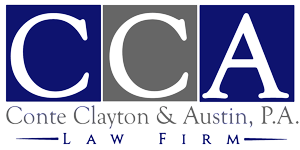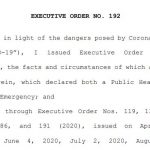Business as Usual: Real Estate Transactions and Estate Planning Continue Amidst COVID-19
While the far-reaching and ongoing impact of COVID-19 has generated never-before-seen levels of business interruption and uncertainty, our firm has been, and remains, committed to continuing operations as efficiently as possible.
This has proven especially successful in connection with Real Estate transactions and Estate Planning—homes continue to be sold, estate plans continue to be finalized, and in the unfortunate event that a loved one is lost, estates continue to be probated and administered. Among all of the challenges and uncertainty, life continues to move forward.
While these types of transactions, by their nature, require the in-person signing and notarizing of documents, recent temporary changes to New Jersey law allow our firm to handle many transactions remotely, without the need for travel or in-person meetings.
On April 14, 2020, Governor Phil Murphy of New Jersey signed a new bill into law (P.L. 2020, c.26), temporarily authorizing attorneys and notaries to witness signatures remotely, subject to certain conditions.
Broadly, this new law allows a notary public (or others authorized to take oaths, affirmations and affidavits as permitted by law—which in New Jersey, includes attorneys) to notarize documents they witness remotely using “communication technology” for individuals that are not physically present. More specifically, the law requires that:
- The Notary has “personal knowledge” of the individual appearing before them (i.e. the person whose document is being notarized);
- The Notary has “satisfactory evidence” of the identity of the individual appearing before them from a “credible witness” appearing before them; OR
- The Notary has “satisfactory evidence” of the identity of the individual appearing before them through use of “two different types of identity proofing.”
Additionally, P.L. 2020, c.26 further requires that:
- The Notary is “reasonably able to confirm” that the record (i.e. the document being signed) before them is the same record that is before the individual signing remotely.
- The Notary must create an “audio-visual recording of the performance of the notarial act” and retain a copy of same for at least ten (10) years.
Lastly, P.L. 2020, c.26 allows for the remote notarization of documents signed by individuals located outside the United States, subject to some additional requirements.
Our firm is ready and willing to provide our clients with remote notarization services so as to expedite the handling of their real estate and estate planning matters without the need for office visits.
We are committed to maintaining a cohesive approach to the individual and business needs of our Clients during the COVID-19 crisis.
Our firm will continue to adopt and implement new means of remote practice and monitor new changes or trends in the legal profession in response to current and ongoing events.
COVID-19 has not stopped us—it should not stop you.
Do you have a question about a business or real estate transaction, estate plan, or another legal matter?
Call us today.






